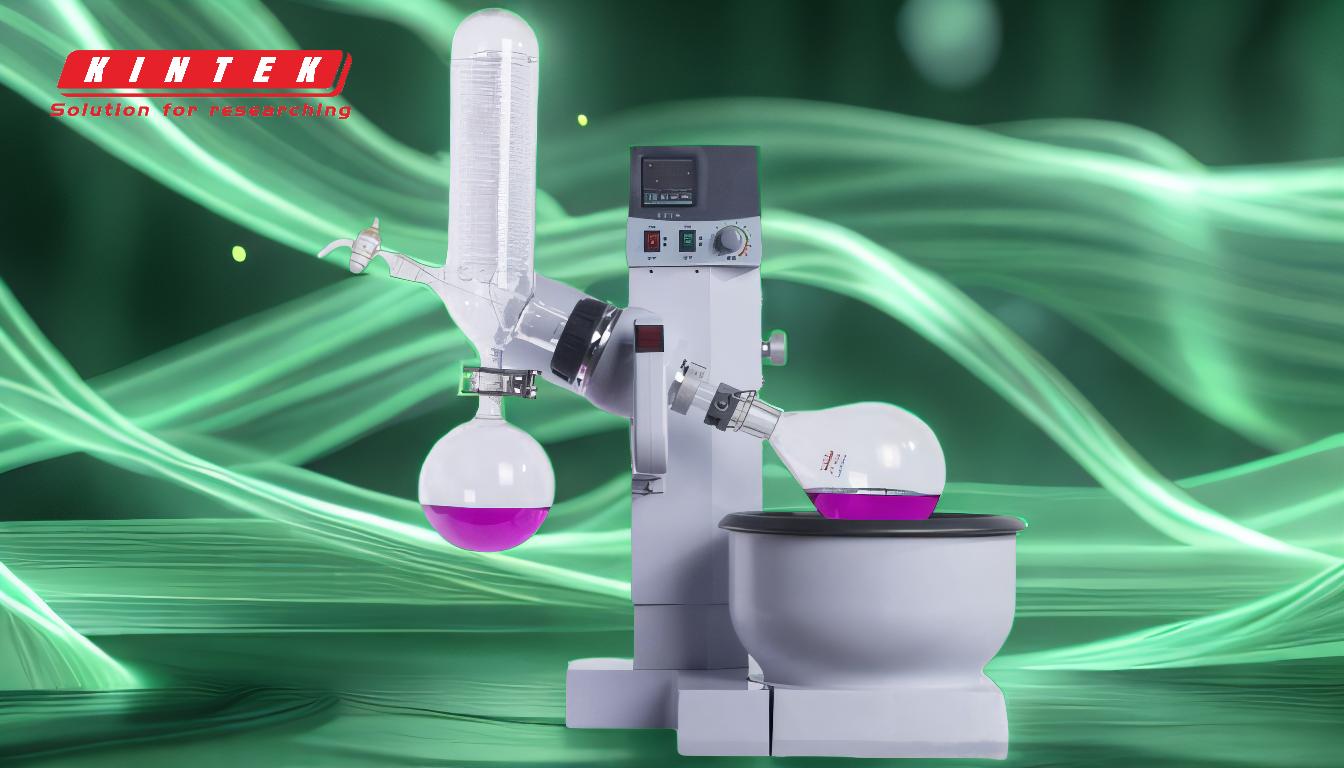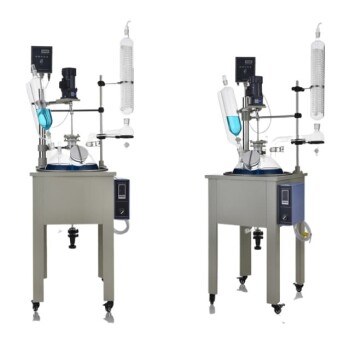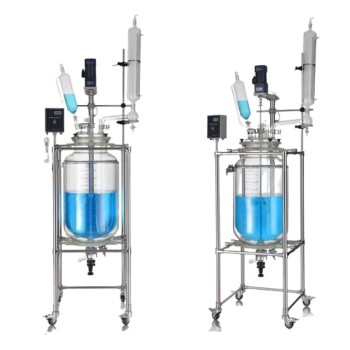The temperature for rotary evaporation typically depends on the solvent being evaporated and the setup of the rotary evaporator. For most common lab solvents, the water bath temperature is usually set between 25°C and 50°C, with a common range of 30-40°C being ideal. Lower temperatures are preferred to minimize the risk of thermal decomposition and bumping, although they may slow down the evaporation process. Ethanol vapor, for instance, typically operates at 15-20°C. The choice of temperature also depends on the solvent's boiling point and the vacuum pressure applied, with tools like manometers and distillation nomographs aiding in precise control.
Key Points Explained:

-
Typical Temperature Range for Rotary Evaporation:
- The water bath temperature for rotary evaporation is generally set between 25°C and 50°C, with 30-40°C being the most common range.
- This range is suitable for most common lab solvents and helps balance evaporation efficiency with safety.
-
Importance of Lower Temperatures:
- Lower temperatures (e.g., 25-30°C) reduce the risk of thermal decomposition of sensitive compounds.
- They also minimize the likelihood of bumping, a phenomenon where sudden boiling can cause splashing or loss of sample.
-
Ethanol Vapor Temperature:
- During rotary evaporation, the ethanol vapor temperature is typically maintained at 15-20°C.
- This lower temperature ensures efficient condensation and recovery of the solvent.
-
Role of Vacuum Pressure:
- Rotary evaporation relies on a low-vacuum pump or sink aspirator to reduce pressure, which lowers the boiling point of the solvent.
- The combination of vacuum pressure and controlled water bath temperature ensures smooth and efficient evaporation.
-
Tools for Optimization:
- A manometer can be used to monitor and adjust vacuum pressure.
- A distillation nomograph helps determine the optimal temperature and pressure settings based on the solvent's properties.
-
Considerations for Solvent Properties:
- The boiling point of the solvent plays a critical role in determining the appropriate water bath temperature.
- For solvents with lower boiling points, lower temperatures are sufficient, while higher temperatures may be needed for solvents with higher boiling points.
-
Water Bath Temperature Capacity:
- Rotary evaporator water baths are available with temperature capacities ranging from room temperature +5°C to 95°C.
- The specific temperature range should align with the solvent and experimental requirements outlined in the Standard Operating Procedure (SOP).
-
Balancing Speed and Safety:
- While higher temperatures can speed up the evaporation process, they increase the risk of thermal degradation and bumping.
- Lower temperatures, though slower, are safer and more reliable for preserving sample integrity.
By understanding these key points, users can optimize their rotary evaporation setup for efficient and safe operation, ensuring high-quality results.
Summary Table:
| Key Factor | Description |
|---|---|
| Typical Temperature Range | 25-50°C (30-40°C ideal for most solvents) |
| Ethanol Vapor Temperature | 15-20°C for efficient condensation |
| Vacuum Pressure Role | Lowers solvent boiling point for smooth evaporation |
| Tools for Optimization | Manometers and distillation nomographs for precise control |
| Safety Considerations | Lower temperatures reduce thermal decomposition and bumping risks |
| Water Bath Capacity | Room temperature +5°C to 95°C, depending on solvent and SOP requirements |
Need help optimizing your rotary evaporation setup? Contact our experts today for tailored advice!












